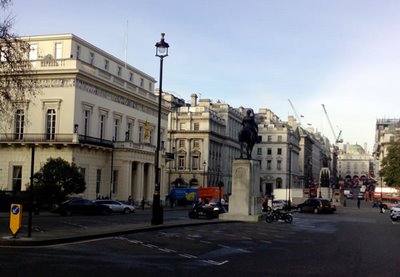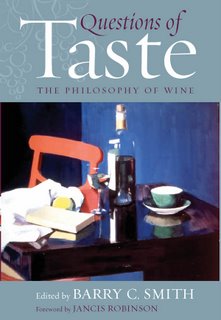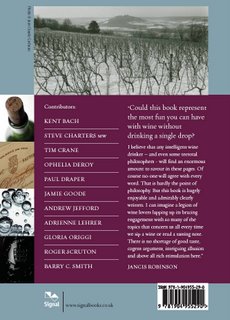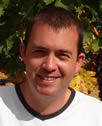Some questions for contemplation, with wine
Just poured a glass of Bodega Tradicion's 30 year old Oloroso (from Fortnum & Mason, it's their own label offering). It is a profound wine and it has reminded me of some of the questions and thoughts I was thinking about when I was walking the dog this afternoon.
1. Is wine art?
2. Does art have the power to redeem? I guess, by this, I'm thinking about whether art has the power to enable us to step outside our daily struggles and busyness, and transport us to a different place: one from which we can see ourselves and our situations in a different light - a light that then empowers us to better deal with our lives.
3. I beauty transforming? Does beauty experienced somehow relfect back on us in a way that changes us, elevating us beyond our current state?
4. As an example, music seems to have a transforming or redeeming quality to it. We can be in a painful, difficult, or mundane place, but then listening to the right music for the time seems to be able to transport us in our minds, distancing us from our current situation, opening up for us a new vista. I also find that music has this ability to bypass my mind (with all its various processing issues) and reach to my 'heart'.
5. There is truth in wine, in as much that modest intoxication by means of wine seems to enable us to see things from a new - and often more generous - perspective. Other forms of intoxication promise to reveal another world, or a new 'reality'; wine keeps us grounded in this world, but helps us to see it differently. It is, in this sense, a virtuous intoxicant. [I think this is one of Roger Scruton's ideas.]
6. The meaning of art, or music, or wine depends on our previous experience. The significance of a particular piece of art is therefore different for each person. This is not to suggest that everything is relative; just that we shouldn't assume that what works for us will also work for others.
7. There is a difference between popular culture and high culture. But it's a shame where people try to erect a firm barrier between the two. Both are important.
Back to tonight: I think this 30 year old Oloroso is a totally profound, complex wine. I think it is 'wine as art'. It has a transforming quality to it that can, in some senses, be counted as redemptive. There's a beauty to it that allows me to step outside my particular circumstance and gain a renewed perspective, one that is tangible on a number of levels - the complexity of the wine, the context of its production (long ageing in barrels), the fact that is displays particular sensory characteristics that I can appreciate in the context of what I know about sherry, and also the sense of mild intoxication that it brings. This would, of course, all be enhanced if I could share this wine with others who also appreciated its qualities.
Labels: Philosophy of wine, ramblings




 The web log of wine journalist Jamie Goode. Feel free to nose around; your comments are welcome
The web log of wine journalist Jamie Goode. Feel free to nose around; your comments are welcome 
